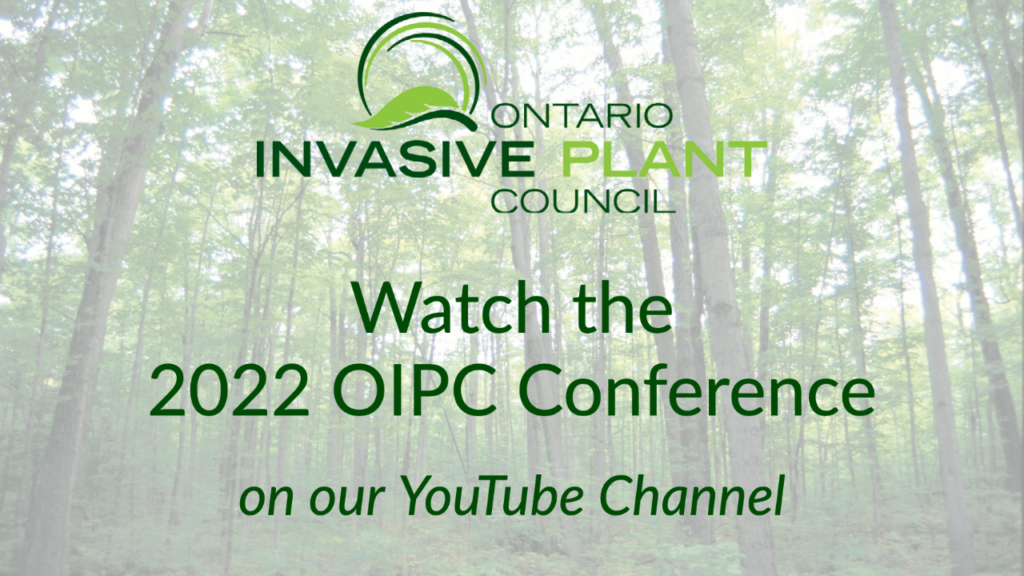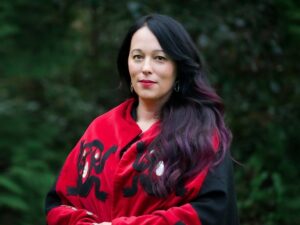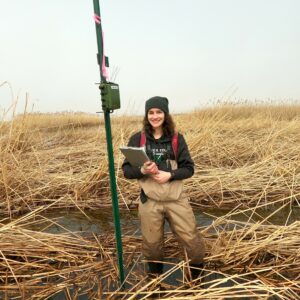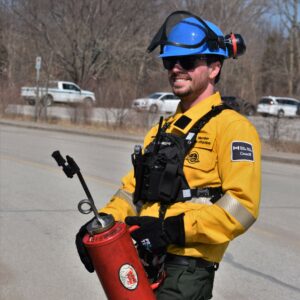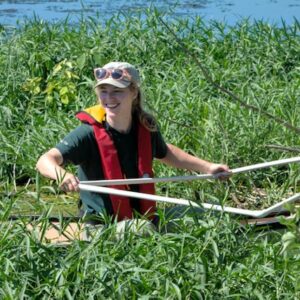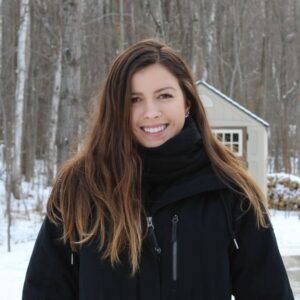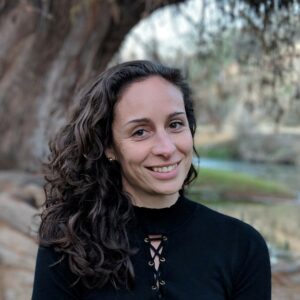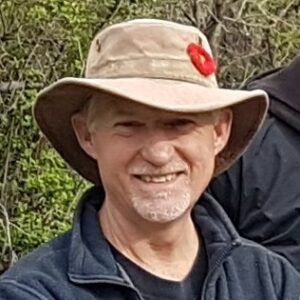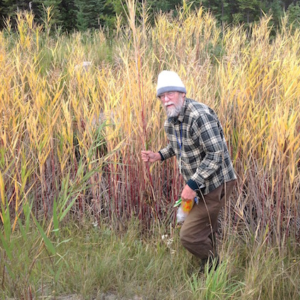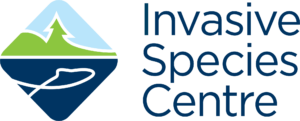Phragmites at CAMI Assembly
Brooke Sampson; GM CAMI Assembly
GM CAMI Assembly of Ingersoll has been monitoring Phragmites growth in four key areas on site since 2015. The pilot project initiated the measurements of density in a 1m2 area, tallest height and representative height with three samples from each of the four monitoring sites. This data is compiled annually to project trends. Along with this, Interns at CAMI maintain Phragmites growth by organizing removal projects each growing season. This presentation will cover the monitoring and maintenance plan, schedules and methods used at the CAMI Assembly Plant since the Phragmites program began in 2015. Success stories and learning opportunities will be shared to hopefully help listeners with their own Phragmites maintenance.
show more
Brooke Sampson is the current Environmental Engineering Intern at the General Motors CAMI Assembly Plant in Ingersoll, Ontario. She has completed her 3rd year of Civil Engineering at Queen’s University and will return to finish her 4th year in September 2022 once her internship is complete. At the CAMI Plant, an important role of the intern’s is to monitor and maintain the spread of Phragmites on site. This is essential to maintain working storm-water ponds and protect our on-site wetland.
show less
Effects of invasive Phragmites australis removal on avian species diversity in Long Point coastal marshes
Marissa Zago; University of Waterloo
Marsh bird populations in the southern Great Lakes coastal wetlands have been declining since the mid 90s. One factor contributing to this decline is the expansion of the invasive grass European Common Reed (Phragmites australis ssp. australis). The Canadian Wildlife Service aims to remove 90% of P. australis in two National Wildlife Areas in Long Point, Lake Erie by 2025. We undertook a Before-After-Control-Impact study to determine the short-term response of marsh bird communities to the removal of P. australis. Throughout the 2019 marsh bird breeding season, Autonomous Recording Units (ARUs) were used to record bird vocalizations in areas where herbicide treatment of P. australis was planned for fall 2019, and in P. australis-invaded areas where no treatment was planned (statistical controls). These sites were resurveyed in 2021 to compare to baseline recordings. We determined the optimal transcription effort required to maximum avian richness estimates from ARUs. Recordings comprised three 15 min segments spread across the dawn chorus on one day within the breeding season. We observed 52 species in 2019 and 46 species in 2021. Preliminary results show an effect of treatment on total bird richness, as well as a change in community composition within control and treated sites, both of which warrant continued monitoring. Our results also highlight the importance of maintaining statistical controls in a Before-After-Control-Impact design to accurately interpret effects-based monitoring results and avoid confounding results with changes in environmental conditions.
show more
Marissa Zago is a Master’s student in the Department of Biology at the University of Waterloo in Dr. Rebecca Rooney’s wetland ecology lab. Her thesis work investigates the important outcomes of wetland restoration efforts in the Long Point Walsingham Forest: Ontario’s Priority Place for Species at Risk conservation. Marissa’s research will elucidate the consequence of European Common Reed removal on marsh breeding birds, which will help inform management of the invasive grass species across the Great Lakes basin.
show less
Point Pelee National Park Marsh Restoration
Andrew Laforet and Tarra Degazio; Point Pelee National Park, Parks Canada
Established in 1918, Point Pelee National Park is located in Southwestern Ontario and consists of 15 km2 mainland peninsula as well as Middle Island (18.5 hectares). The Park is home to over 60 federally listed species at risk. Approximately 72% of the park’s mainland is comprised of marsh habitat and 19 species at risk are dependent upon its continued presence. Since the late 1950s, the overall percentage of open water habitat in the marsh has decreased by 10 percent (100 hectares) due to habitat alterations, reducing overall habitat biodiversity for all marsh species, including species at risk.
The objective of this project is to increase open water and edge habitats in the marsh through removal of invasive floating cattail mats and invasive Phragmites to restore habitat diversity for species at risk where the park can influence recovery. Planning involved an Open Standards workshop to review threats to the marsh and develop a Community of Practice on marsh management, as well as contacting wetland managers from various organizations within Canada and the USA to discuss management methods. This process provided a foundation for the project’s conservation and restoration planning.
The Park is using an aquatic vegetation cutter and aquatic weed harvester to recreate open water areas, and use “cut to drown” techniques and herbicide application for treatment of Phragmites in species at risk areas of concern. Cutting Phragmites to drown with hedge trimmers began in the 2020 and 2021 seasons. Heavy machinery has been field tested. The restoration team has adapted to rising challenges within the project, learning much along the way, and work with hedge trimmers, herbicide and heavy machinery will resume in 2022.
show more
Andrew Laforet began with Parks Canada in 2012 as an interpreter. In 2016, he moved into the Interpretation Coordinator role for Point Pelee National Park where spent much of his time both learning and teaching about Point Pelee’s rich marsh habitat. In 2020, he took on the role of Project Coordinator for the park’s resource conservation team. He currently manages the marsh restoration project, as well as the prescribed fire project at Point Pelee. Andrew holds an honours degree of mathematics from the University of Windsor.
Tarra Degazio is s Resource Management Officer at Point Pelee National Park. She began her career with Parks Canada in July 2013. Since then, she has been heavily involved in a number of the park’s resource conservation programs and projects including American Water-willow monitoring, water quality monitoring, tree and seedling monitoring, Southern Flying Squirrel monitoring, Eastern Foxsnake monitoring, snake/turtle telemetry, and invasive vegetation management. Tarra holds BSc in Ecology from Laurentian University.
show less
Biological control of invasive knotweed: How post-release research can contribute to the success of a weed biological control agent
Dr. Ian Matthew Jones; University of Toronto, Institute of Forestry and Conservation
Knotweeds species are among the most serious invasive plants in Europe and North America. The knotweed psyllid, Aphalara itadori, has been approved as a biological control agent on both continents, and releases began in the UK in 2010, in Canada in 2014, and in the United States in 2019. Despite widespread releases, across a range of habitats and conditions, no field population of A. itadori has been confirmed to survive for multiple growth seasons. We describe research designed to identify the obstacles preventing the establishment of A. itadori, as well as efforts to overcome them. Additionally, we describe recent advancements that show great promise for finally providing successful biological control for invasive knotweeds.
Dr. Ian Jones is a postdoctoral research fellow working with the Smith Forest Health Lab and Agriculture and Agri-Food Canada (AAFC). His research focuses on the ecology of insect-insect and insect-plant interactions. Ian received a Masters degree in Applied Entomology from Imperial College London, and completed his PhD at Florida International University. Ian’s postdoctoral work focuses on classical biological control of invasive plants. Through an understanding of the ecology of biological control insects, and their interactions with native species, Ian seeks to improve the release strategy and establishment of these beneficial organisms, contributing to more effective and sustainable control of invasive weeds.
show less
Severn Sound Environmental Association – Tackling invasive species on a watershed scale
Tamara Brincat; Severn Sound Environmental Association
The Severn Sound Environmental Association (SSEA) is committed to ensuring exceptional environmental quality and exemplary stewardship of the Severn Sound area through sound science, collaboration, and partnerships at a watershed scale. Since invasive species do not respect private, municipal, or regulatory boundaries, the SSEA initiated the Invasive Species Program in 2017 to support municipal partners, providing expertise and a coordinated local approach to invasive species education, detection, monitoring, and management.
The goal of the SSEA Invasive Species Program is to reduce the ecological, economic, and social impacts of invasive species, through mapping and data collection, providing education and outreach to municipalities and the public, linking with regional, provincial, and federal invasive species initiatives, as well as working with local organizations and volunteers. The SSEA Invasive Species Program includes developing and periodically updating a cross-municipal strategy, promoting partnerships and cooperation between municipalities, residents, and community groups, and coordination of a multi-partner working group to share information and lessons learned at a local level. Through the Program, over 70 different invasive organisms have been detected within the Severn Sound watershed area to date, including a wide range of terrestrial and aquatic plants, invertebrates, fish, mammals, algae, and micro-organisms. The presentation will provide insight into how the SSEA developed a coordinated approach with eight partner municipalities to reduce the impacts of invasive species across jurisdictions through communication, monitoring, mapping, and management. It will highlight some of the challenges and successes of a watershed scale invasive species initiative.
show more
Tamara Brincat (BSc, CERPIT, EPt) graduated from the University of Guelph with a Bachelor of Science, majoring in Biological Science and completed a Graduate Certificate from Niagara College in Ecosystem Restoration. Tamara began with Severn Sound Environmental Association (SSEA) in 2020 as a seasonal Invasive Species Technician and has advanced to the role of Invasive Species Program Coordinator. Over the past year within the Severn Sound watershed, Tamara has developed an invasive species citizen science program, facilitated invasive species monitoring and management projects, delivered training and outreach to local municipal staff and community groups and hosted a multi-partner working group.
show less
Protecting Nature Where you Live. The Power of Community Involvement
Beatriz Gomez-Canizo; Oakvillegreen Conservation Association
Invasive Species are one of the mayor threats to ecosystems in Ontario; urban ecosystems are not the exception. Southern Ontario is the most densely populated area in Canada and home to extremely valuable ecosystems, this is one of the main reasons why Oakvillegreen has been involving the community in hands-on stewardship and effective actions to improve local biodiversity and invasive species monitoring and control. With great results, this community involvement has provided residents with the knowledge and tools needed to take action in their own neighbourhoods and contribute to invasive species management plans.
Since 2015 and in close collaboration with the Town of Oakville and Conservation Halton, Oakvillegreen has involved businesses, schools, youth groups, seniors and general citizens in workshops, webinars, walks and invasive species removal events, tackling species like garlic mustard, buckthorn, Phragmites, dog strangling vine, LDD moth masses and others.
Our programs are about empowering the community by introducing the notion that we can all do something positive about the ecosystems surrounding us, which has not only increased citizens’ participation but reduced the complaints received by the Town of Oakville when removing invasive species from public property.
show more
Beatriz Gomez-Canizo has dedicated her professional life to natural resources’ conservation. With studies in Biotechnology Engineering, postgrads in Natural
Resources Management and Education and a Masters in Water Management. She has over 17 years of experience in the non-profit sector with international experience managing projects in sustainability, water management, community
development, environmental education and public awareness. Beatriz Gomez is part of Oakvillegreen Conservation Association, where she manages outreach and stewardship programs like the OCA Ready for Rain, local
Depave Paradise projects and OCA Youth Stewards.
show less
Aggressive Native and Near-Native Plants. Unintended consequences?
Stephen Smith; Urban Forest Associates Inc.
Many of us have been asked what we should do about aggressive native plants in our projects; whether they are unwanted vines that carpet the site, shrubs that invade our prairie plantings or plants from other parts of North America that act like invasive species. Our discussions to date have centered on the problems of alien species but many North American natives can interfere just as much with our project goals. During this session, we will discuss this conundrum and offer some solutions.
show more
Stephen Smith is a forester and certified arborist with the firm Urban Forest Associates (UFA) Inc., a small firm in Toronto. As a restoration practitioner, he has designed and supervised hundreds of ecological restoration projects throughout Ontario, working with many partner groups, and is the author of the invasive plant species list for Ontario. He is a founding member of the Society for Ecological Restoration Ontario and a member of the Ontario Invasive Plant Council (OIPC), and the Forest Gene Conservation Association (FGCA). Stephen and his company have been active in managing Toronto ravine forests for over 30 years, working for many private homeowners, institutions, non-profits, and the City of Toronto and Toronto Region Conservation. Stephen organizes volunteer planting events and stewardship work days for many groups across the city every year.
show less
The Role of Science Communication and Journalism in Invasive Plant Management
Frederick Schueler; Fragile Inheritance Natural History
Using articles he has written for the North Grenville Times about invasive plants as examples, Fred Schueler will make the pitch that if ecological and natural history events are to be properly represented in popular media, naturalists and scientists must write articles and get them published in various media.
show more
Fred Schueler is an unemployable nomadic peasant scholar, who having learned, as an undergraduate, the lesson that “ecology is the science of where organisms are found”, has spent half a century finding and documenting where organisms occur. He was brought up on the theory that climax continental floras were so well integrated that they were unsusceptible to invasion by alien species, but was triggered to concern about invasive species in 1985 when Frangulous Buckthorn showed up on his land in Bishops Mills, Ontario. While he has surveyed native & invasive Phragmites, White & Yellow Sweet-clovers, Broad- & Narrow-leaved Cattails, and Dyssodia papposa all across southern Canada, he hasn’t formally written up or analyzed these surveys, and will discuss a series of popular articles prepared for a local newspaper.
show less
